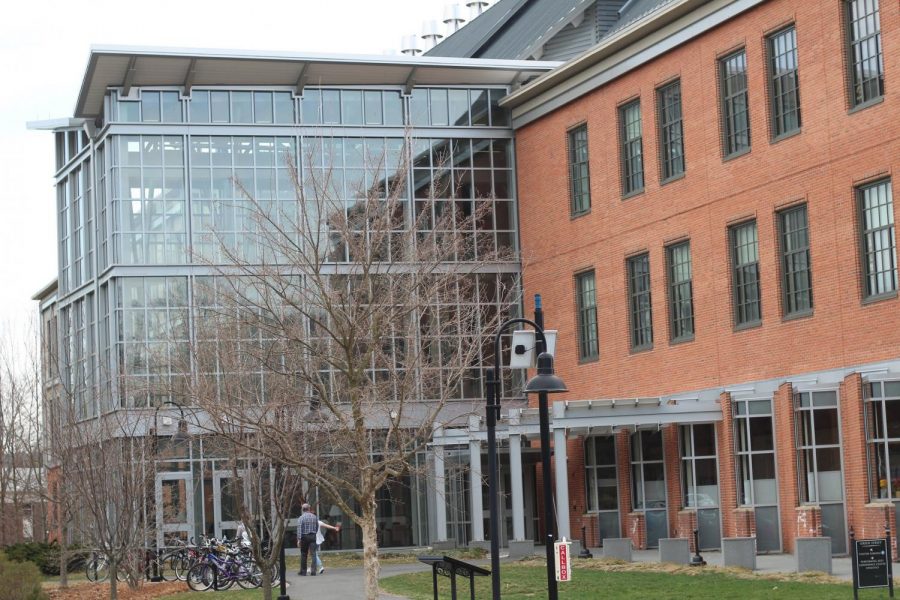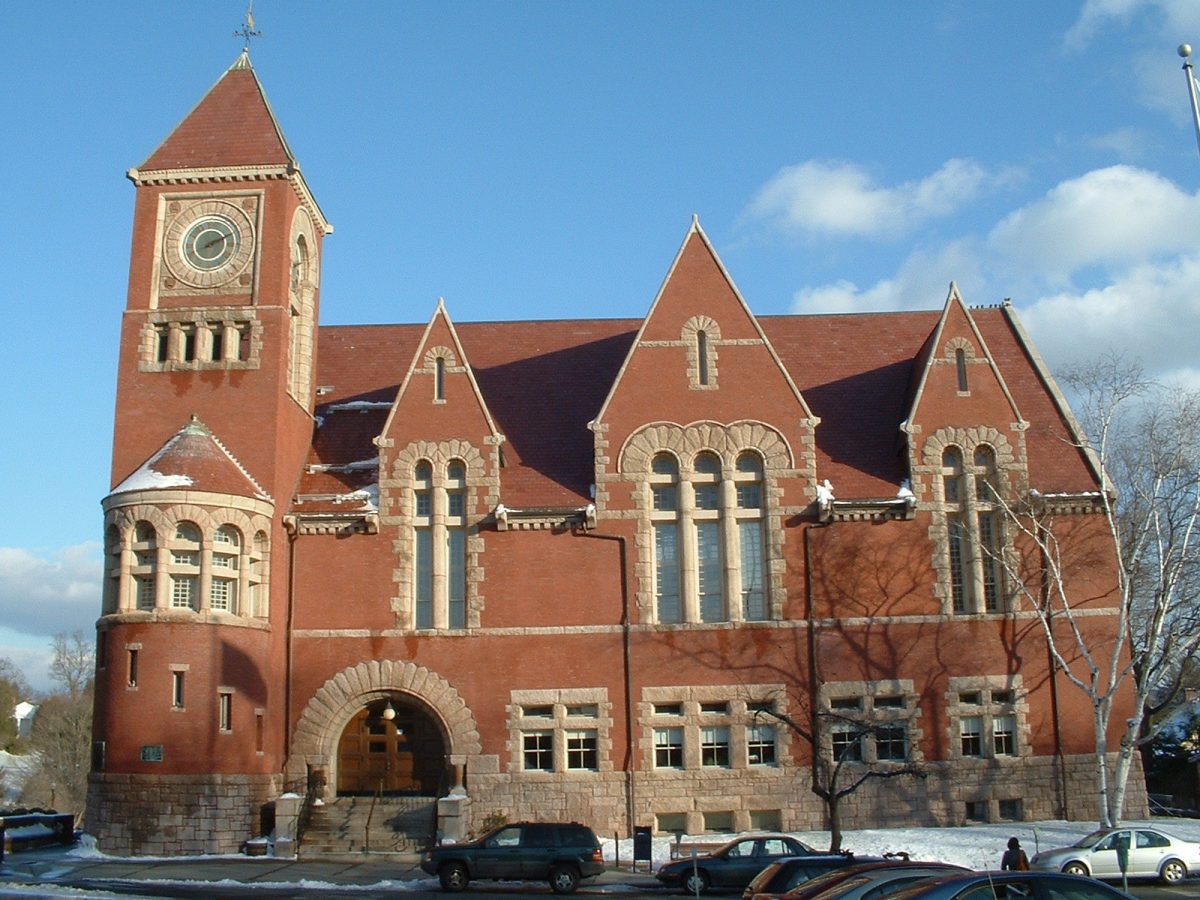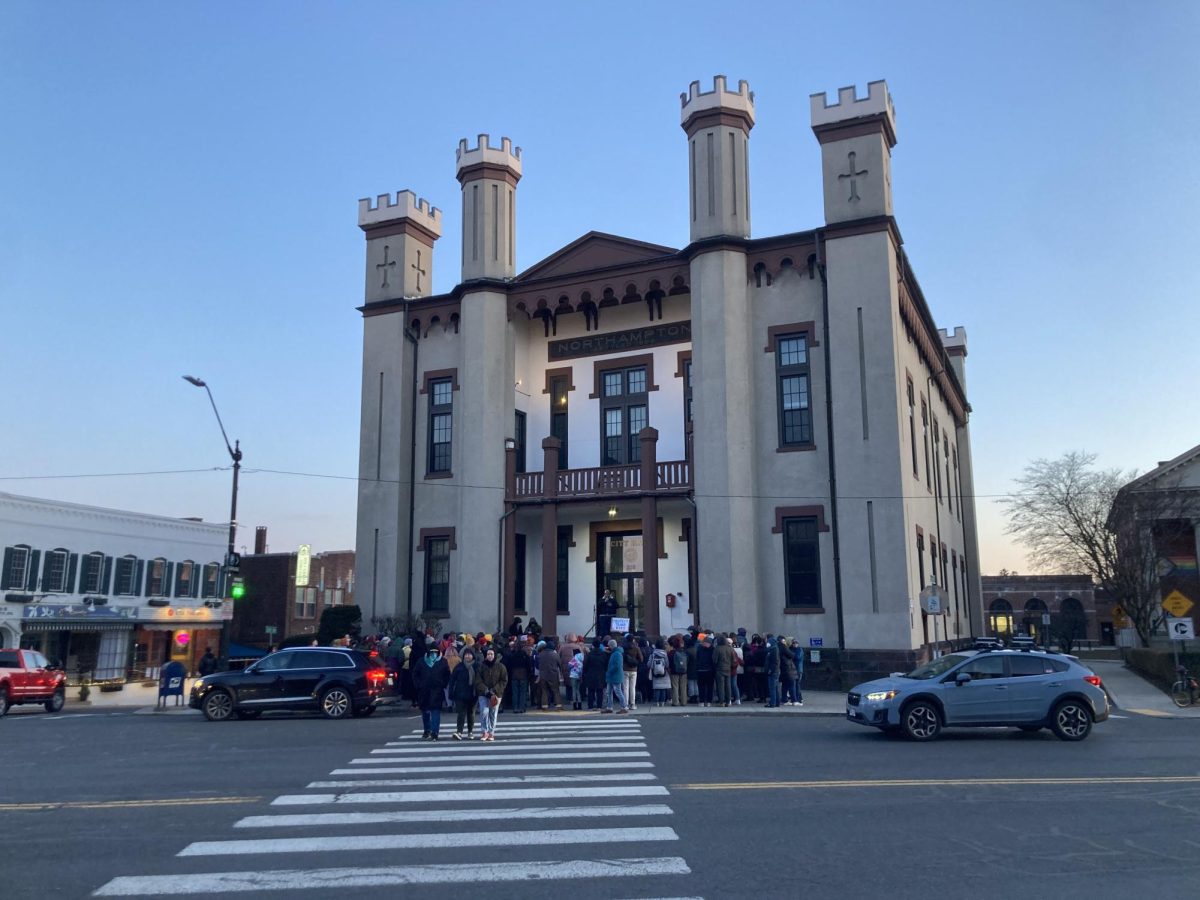Dr. Erika Tatiana Camacho, an associate professor in the School of Mathematics and Natural Sciences at Arizona State University, delivered a lecture entitled, “Resilience, Tenacity, and Hard Work: My Story, Your Future, and Our Responsibility to Create a Strong Quantitative Community” on April 2 in Smith College’s Picker Case Study Room in Ford Hall.
Camacho’s talk completed the 2018 Speaker Series sponsored by the Science Center Committee on Diversity at Smith. The committee’s members include students, staff and faculty. The lecture’s attendees included all three groups, exceeding the number of seats in the room.
After graduating from Wellesley College with an undergraduate degree in economics and mathematics, Camacho earned a doctoral degree in applied mathematics from Cornell University. She’s worked at Los Alamos National Laboratory in New Mexico and spent a year as the MLK Visiting Professor at the Massachusetts Institute of Technology, among other professional positions.
Camacho’s talk delved into her background as well as the journey she’s taken, and it transferred her experiences into several steps everyone — specifically students and faculty — can pursue to create a diverse, inclusive quantitative community, especially in academia.
“One of the things we really need to do in academia is transform. Not just transform ourselves, but transform the individuals that we work with by the initiatives that we set forth. And that means sometimes being in very uncomfortable situations, making difficult decisions — decisions that not everyone is going to agree with, but they’re for the better of the greater good…We have to be proactive, not reactionary,” Camacho said.
Camacho detailed her childhood in East Los Angeles saying, “When I was growing up, all the signs around me told me I wasn’t going to make it; in fact, I’m probably going to end up pregnant soon, married, who knows what?”
Before meeting Jaime Escalante, a high school mathematics teacher, Camacho aspired to be a cashier in a grocery store.
Camacho said, “He really changed my perspective…Because of him, I realized that I didn’t have to be a cashier, that actually I could go and become an engineer or something better.”
“Stand and Deliver,” a 1988 movie, profiled Escalante, whom students nicknamed Kimo. In a March 2010 article written by John Blackstone for CBS News about Escalante’s deteriorating medical condition and the efforts by students to raise money for his expenses, Camacho is quoted: “You owe him to do good because he’s put so much of himself to make sure that you succeed that it’s only fair to give back what he has given to you.”
According to Camacho, Escalante’s belief in her ability to succeed fundamentally altered the course of her life, allowing her “to cultivate an interest in mathematics and, most important, he allowed [her] to believe in [herself].”
Reflecting on Escalante’s impact as an educator, Camacho posed the questions, “How do we extend Jaime Escalante’s approach? How do we make sure that we create more scientists, or that we make individuals that are not going to be scientists more quantitative?”
She continued by saying, “We have to…start by understanding who they are before we even start lecturing…so that we can teach each in a way that’s appropriate for them — that we tailor certain things that we do.”
She stressed the importance of ensuring faculty members know their students, which begins with students introducing themselves and attending office hours according to Camacho.
David Carreon Bradley, the vice president for Inclusion, Diversity and Equity at Smith, met Camacho at a leadership institute organized by the Society for Advancement of Chicanos/Hispanics and Native Americans in Science.
Bradley explained Camacho’s excellent networking, focus on mentor/mentee relationships and ability to connect with people as the institute’s “lessons living themselves out in the real world.”
Maggie Burkart, a sophomore majoring in computer science, attended the lecture to receive the extra credit her professor offered, taking numerous notes throughout the talk.
Smith President Kathleen McCartney introduced Camacho, emphasizing, as a first-generation college student, access and affordability are very important to her.
“[I’m] trying to do what I can to support all efforts to make Smith a more inclusive place,” McCartney said.
From time to time, McCartney has the resources to bring people to share their stories as well as what they’re doing — a representation of people leading by example.
Camacho said, “STEM [Science, Technology, Engineering and Math] education is what’s going to allow us to mold our shape, our life, to be what we want to be. It’s like Kimo, my high school teacher used to say, ‘Math is the great equalizer.’ A STEM education is the great equalizer.”
Elizabeth Wallace can be reached at [email protected] and followed on Twitter @ER_Wallace.




















Brian Clair • Sep 25, 2020 at 4:55 am
I’ve heard about stem lecture from one of my acquaintances. This lecture is literally a lifetime opportunity for Science & Maths Students as it offers them to experience real science.